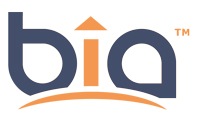
Boosting Your Productivity in the Summer
For those of us in the northern hemisphere summer is finally upon us and over the next few weeks schools will be closing, the sun will be shining, and you’ll be daydreaming that you’re at the beach, at the cottage on a boat, at the pool, or anywhere but your desk.
It’s natural to be less productive at work in the summer months; especially due to nice weather, vacations and summer activities with your family. This can affect productivity.
However, there is an opportunity to enjoy summer and also stay productive. Working outside of the office can help. Years ago, I would dedicate one day of my cottage holiday to a specific work assignment.
As a product manager summer was the time our group usually developed our budgets and marketing plan for the next fiscal year. Doing this work at my office desk was always tedious and time consuming and seemed to take days. However, at the cottage, where I was well rested and relaxed in the natural setting that surrounded me, my brain seemed to work better and I found myself much more efficient and effective. The one day I set aside was always sufficient to complete the task and I seemed to come up with better ideas; enjoying the beautiful view and non-office setting surrounding me. I was always surprised that I could accomplish so much more than while at my office desk. Of course, I had to be sure that there were no distractions during that work time I had set aside—I would send family members out to enjoy summer activities or sightseeing so that I could be left in peace and quiet.
By taking one day of my “holiday” to complete this annual assignment, I could rest easier for the remainder of my vacation and not worry about the deadlines at work or what was happening (or not happening) at the office.
If stationary holidays are not your thing, or are not possible, just working outside in a quiet, natural setting can work wonders. According to Andrea Faber Taylor, a child environment and behavior researcher at the Landscape and Human Health Laboratory at the University of Illinois at Urbana-Champaign, everyone can benefit from the restorative powers of nature. She explains that the human brain has two forms of attention: “directed” attention, which is what we use most of the time to concentrate on work, studies and tests, and “involuntary” attention, which is what occurs when we automatically respond to things like running water, crying babies or wild animals.
The problem is that directed attention is a finite resource — everyone has experienced the fatigue of taking a test or a big project at work. Attention restoration theory suggests that walks in nature and views of green space capture our involuntary attention, giving our directed attention a needed rest.
“We advocate that children be given views of green space from the classroom,” Dr. Faber Taylor said. “We’ve done research on children in public housing that shows the ones who have a green view perform better.” Dr. Faber Taylor notes that in adults, there is also evidence that a green view is beneficial. She says that while many researchers continue to study the topic, the benefits of natural settings are obvious to most people. “Most people recognize the pattern,” she said. “For so long we have ignored the effect our physical environments have on our ability to pay attention.”
So perhaps the feeling of wanting to finally break out from routine and take off from the office is nothing to feel guilty about; rather, it can be an opportunity to change the way we work during the summer—boost our productivity by finding creative ways to work outside in a natural setting and take advantage of natural settings to help reduce brain fatigue.


